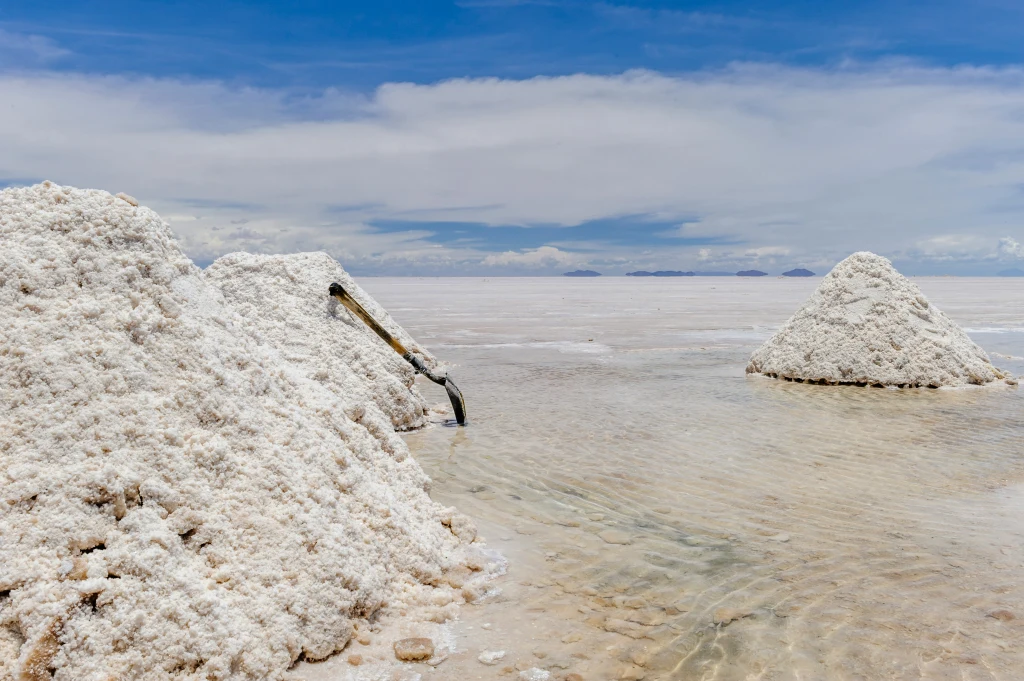“Maritime areas presents vast economic resources for countries who are willing to fight for it.”
By Jeremy Ron Teboul
Territorial disputes between nations over resources have been going on for centuries, and key maritime territories, could potentially solve the onshore energy crises for the elite nations who control them. Most of 21st century conflicts arise from disputes over shared resources. Conflicts over maritime areas are commonly underestimated because they do not directly involve civilians. In this article, we show that they are in fact significant because of the economic and political stakes for governments. Imperialism–the act by which countries expand their power through the acquisition of land–is still a major conflict today. While there are many reasons for territorial disputes, imperialism in the 21st century is mostly economically driven. Today, more than ever, imperialism takes place on what used to be the main obstacle to discoveries centuries ago, according to famous adventurers like Columbus–water.
Constituting more than 70% of the Earth, water is the result of great territorial disputes around the world. These maritime areas, bodies of water around a sovereign country, are defined by the United Nations, in its convention on the Law of the Sea. Maritime areas, in political terms, are referred to as Economic Exclusive Zones (EEZ), where ‘exclusive’, refers to the exclusivity individual governments have to exploit such zones. This EEZ starts from a country’s shore up to 200 nautical miles away from their land. Problems arise when the UN evokes the question of sharing such maritime area: when two countries’ EEZ adjoin, the countries ‘should’ share the maritime area equally.
While most countries do abide by these international laws, the economic stakes of being able to exploit the resources present in oceans and seas are too high for some ambitious nations, especially in regions of cluster, where EEZs are relatively small and sharing becomes an international brain teaser (i.e. South East Asia). Today, maritime areas constitute a source of political and economic conflict, which involves resources worth billions of dollars for whomever acquires it first. What is the economic significance of maritime areas and what are the political and economic consequences for countries that transgress the international laws currently in place?
Conflicts in Economic Exclusive Zones: A problem of resources

courtesy of the BBC, UNCLOS and CIA
What is a good economic problem that does not involve an allocation of scarce resources? Natural resources, energies, or even fisheries, are all resources present under water and it is imperative for countries who seek economic prosperity to have a direct access to these resources. For instance, the South China Sea, is “estimated to hold 11 billion barrels of oil, 109 trillion cubic feet of natural gas, and 10 percent of the world’s fisheries” (Vox). The People’s Republic of China, political and economic leader in the region, claims most of the South China Sea because of a Nine-dash line which originated from Taiwan when it still controlled Mainland China. This virtual imprecise line is conflicting with the UN’s EEZ law and is the main conflict today in South East Asia. For the past two decades, China has been building artificial islands outside of its EEZ to form military bases in the region. While localized, this problem still involves a lot of actors, especially the United States, which regularly patrols in the area and has been fighting a cold war with China on the matter. Current White House Chief Strategist Steve Bannon declared that “ [the U.S.] is going to war in the South China Sea in 5 to 10 years. There is no doubt about that” (reports The Guardian). Resources are a source of international conflict as far as maritime areas are concerned. Although the U.S. is playing an objective policeman role in the region, one can assume it is economically motivated to allow its South East Asian allies to embrace such resources as opposed to its Chinese economic rival.
Maritime areas, an essential component of trade:

France’s Exclusive Economic Zones, compiled by The Economist.
Such maritime zones also hold economic importance because they allow for direct international cooperation. Trade deals, regardless of their effectiveness, are strong incentives for the possession of a vast and strategically selected maritime area. There are several aspects to look at:
On the one hand, countries like France, the United States and Russia manage vast maritime areas but do not necessarily qualify for ‘strategic’ ownership of the key maritime zones that facilitate trade deals. For instance, France possesses the largest EEZ in the world. With territories spread out across all continents, its EEZ sums up to more than 11 million square kilometers, making it very efficient to trade with many nations.
On the other hands, some maritime areas are more precious than others: The United Kingdom claims 3 nautical miles around the Strait of Gibraltar, key passage between the Iberian Peninsula and North Africa. One can note that trade is also a major source of conflict because of straits and the importance of an accessible route for shipping efficiently. South East Asia is again at the center of the problem as far as straits are concerned. The World Economic Forum reports that “according to the United Nations Conference on Trade and Development (Review of Maritime Transport 2011), almost half of the world’s total annual seaborne trade tonnage passed through the Strait of Malacca and the nearby Straits of Sunda and Lombok in 2010”. This creates a new source of “friction” in the region, this time between Malaysia, Singapore and surrounding nations, adding up to the Nine-dash line issue.
Trade is thus dependent on maritime areas and these two strategies – either a vast EEZ or a strategically determined EEZ – are different ways to successfully compete in the world’s maritime imperialist quest.

South China Sea Major Crude Oil Trade Flows compiled by the Energy Information Administration
There are other economic reasons for wanting to acquire marimite areas. China seeks to build military bases in the South China Sea to facilitate and reduce the cost of its defence. EEZs can significantly affect economic affairs especially when it involved the military power of world economic champions like China or the United States, who both recently promised to increase their military spending. The economic factor of current territorial disputes on water is significant as nations are reconsidering their trade deals in 2017. Acquiring resources, precisely fossil energies such as natural gas and oil, soon to disappear, has never been more present on governments’ agendas. The economic stakes involved with straits and maritime trade routes also contribute to the economic race set by the United States and China. As the new American administration settles in, President Xi Jinping has remained intransigent on the question of the Nine-dash line. It remains a challenge for the United Nations to successfully sort such economic matters, especially as members of its P5 veto power states are are at the front of the negotiation table.
Maritime zones constitute a critical new form of imperialism, happening away from the coasts. The decline in classical land-based imperialism coincides with the decrease in resources available on mainland. Governments understand that most resources in our planet are now to be found under water. Ambitious governments wish to solve the energy crisis by exploiting EEZs. Furthermore, military power and political power is also a reason for classifying maritime zones as precious organs of a country’s exclusive territory. The United States, greatest maritime patroller in the world, has endorsed the role of moderator in regions such as the South China Sea, where China captured most of the power. As it is practically impossible for a country to acquire or even manage all maritime areas, two strategies repeatedly occur: Acquiring a vast maritime area, thus favoring political influence or strategically selecting part of an EEZ, which has the most resources to exploit. Despite different strategies for exploiting EEZ, all countries value the importance of maritime areas, making them battlefields for trade wars, as populist regimes flourish both in the East and the West.
Sources:
Image Source: pixabay
The United Nations, Preamble to the United Nations Convention on the Law of the Sea (n.d.). Retrieved March 03, 2017, from http://www.un.org/depts/los/convention_agreements/texts/unclos/part5.htm
Ellis, S. (2017, February 17). Why China is building islands in the South China Sea. Retrieved March 03, 2017, from http://www.vox.com/videos/2017/2/17/14642818/china-south-china-sea-us-islands
Haas, B. (2017, February 01). Steve Bannon: ‘We’re going to war in the South China Sea … no doubt’ Retrieved March 03, 2017, from https://www.theguardian.com/us-news/2017/feb/02/steve-bannon-donald-trump-war-south-china-sea-no-doubt
Hirst, Tomas. (2014, May 21). The World’s most important trade routes. Retrieved March 03, 2017, from
https://www.weforum.org/agenda/2014/05/world-most-important-trade-route/
The Economist, (2016, January 13). Drops in the ocean: France’s marine territories. Retrieved March 03, 2017, from http://www.economist.com/blogs/graphicdetail/2016/01/daily-chart-10
Smith, J. M., Eisenman, J., Hart, G., Mendis, P., Wang, J., & Rines, S. (n.d.). China and America Clash on the High Seas: The EEZ Challenge. Retrieved March 03, 2017, from http://nationalinterest.org/feature/china-america-clash-the-high-seas-the-eez-challenge-10513






Leave a comment